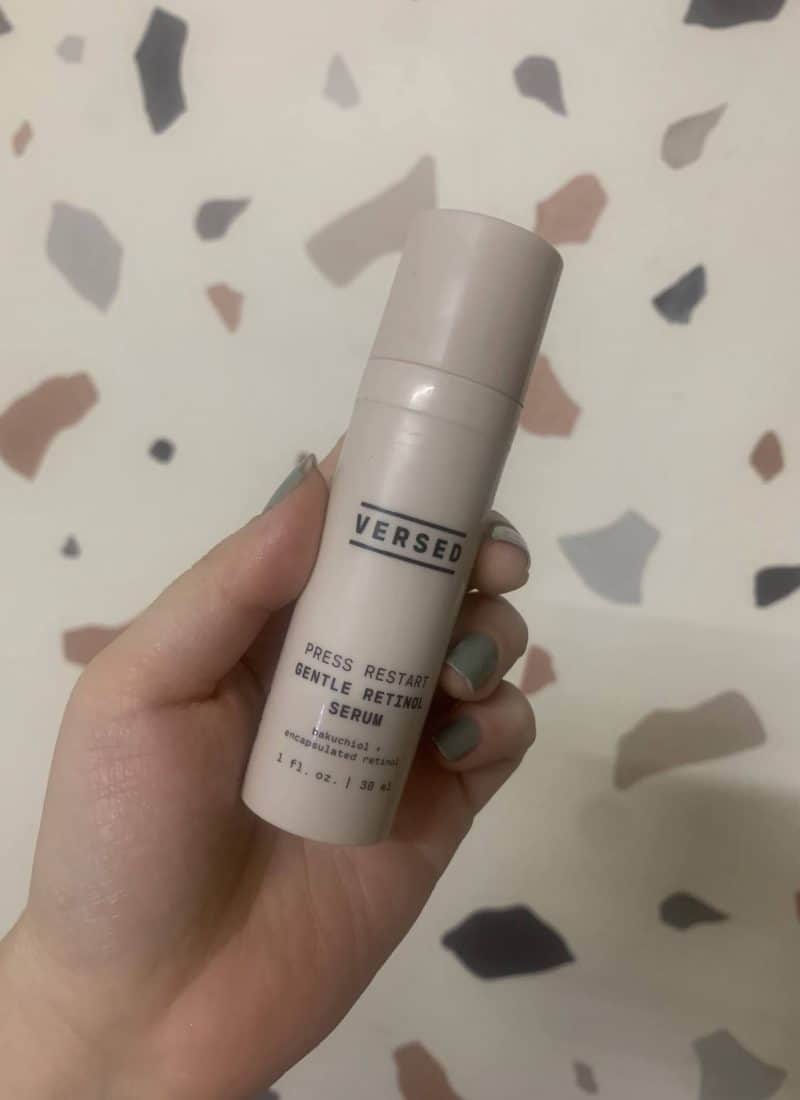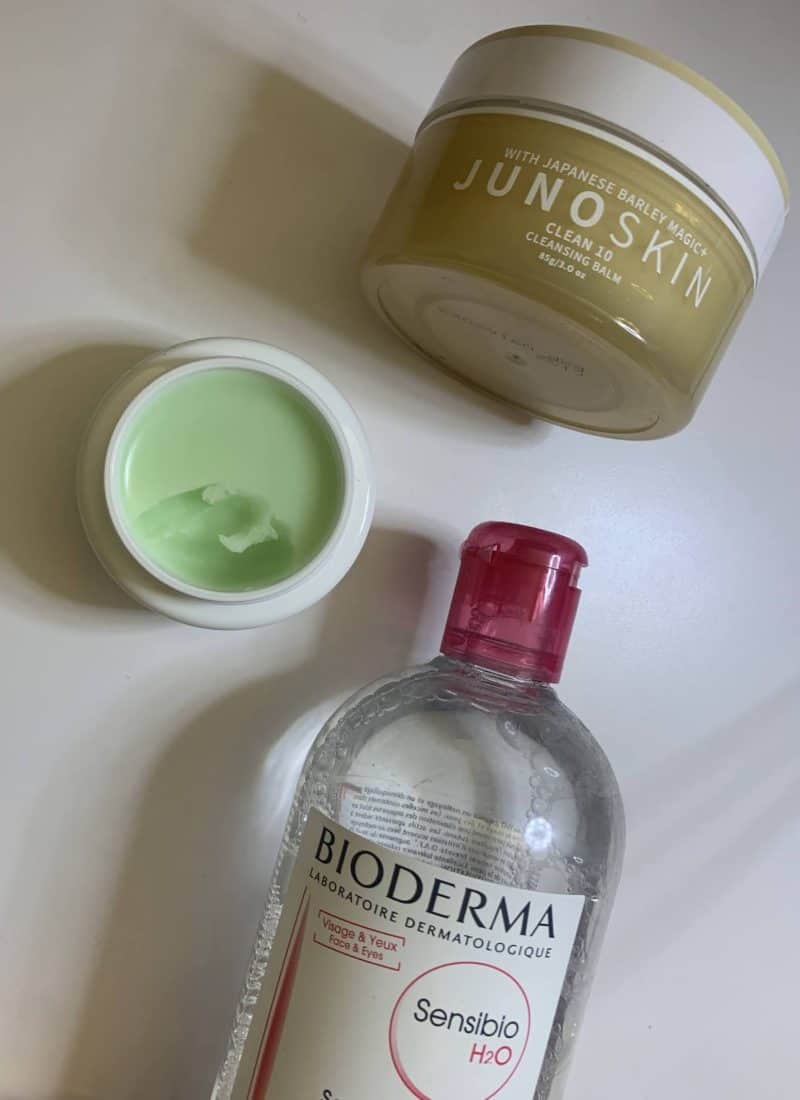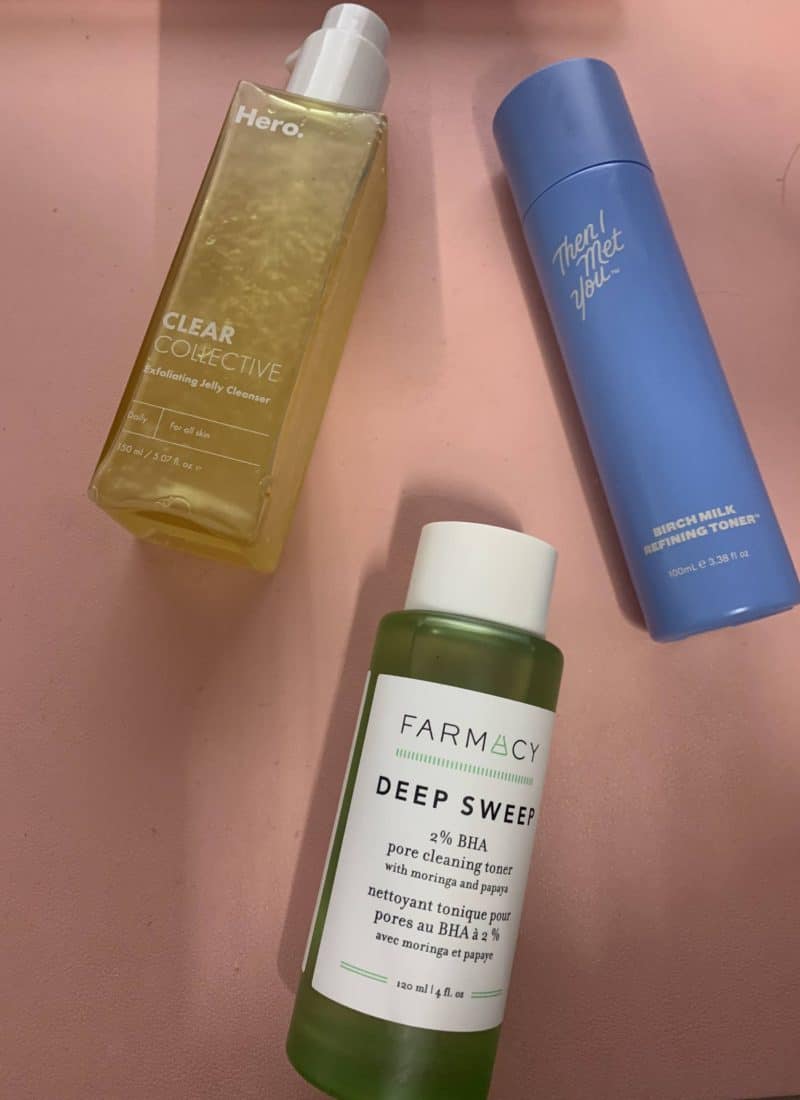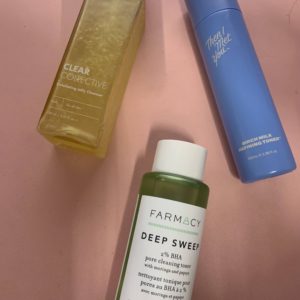From salicylic acid to vitamin c, the list of skincare ingredients is endless. It can seem confusing trying to figure out what ingredient to use to treat your skin concern, but understanding how they work can help. Today I’ll be breaking down some of the most popular ingredients used in skin care products and what they’re used for.
“Active” Skincare Ingredients
An “active ingredient” helps to treat specific skin concerns by resurfacing the skin, unclogging pores, or stimulating collagen production.
Benzoyl Peroxide
Benzoyl peroxide is an anti-bacterial ingredient that is often used to treat acne. It is most commonly found in skin care cleansers, but is used in a variety of different acne treatments on the market.
Benzoyl peroxide is one step stronger than salicylic acid because it helps to reduce acne-causing bacteria. This makes it very effective for treating inflammatory breakouts like mild pustules.
Found in: Panoxyl 4% Facial Cleanser
Retinoids
Retinoids are one of my all-time favorite ingredients! If you’re looking to target signs of aging with your skin care routine, these vitamin a derivatives are a great place to start:
– Retinol: Retinol is the most accessible vitamin a derivative. You can find it in lots of products at drugstores and in many formats like serums, creams, and even cleansers!
Found in: Versed Press Restart Retinol Serum
– Retinaldehyde: Retinaldehyde is one step stronger than retinol. It’s not as commonly found in products on the market, but if you’re a retinol veteran, it might be worth stepping up.
Found in: Medik8 Crystal Retinal
– Adapalene: A prescription-strength retinoid that is now available over-the-counter. It’s a great option for treating acne and clogged pores. There aren’t a ton of brands that carry adapalene products, but Differin, La Roche-Posay, and Proactiv each have one.
Found in: Differin Gel
– Tretinoin: The gold-standard retinoid. This skin care ingredient is an effective treatment for acne, signs of aging, uneven skin texture, dark spots, and more. It’s only available by prescription only, so you’ll have to connect with a dermatologist to see if it’s a good fit for you.
Learn more about the difference between retinol vs retinoid derivatives in my full blog post!
Alpha-Hydroxy Acids (AHAs)
An alpha hydroxy acid is an exfoliating acid that helps to remove dead skin cells, gets your skin to produce more collagen, and improves cell turnover to reveal brighter, healthier skin. Some commonly used ingredients are:
– Glycolic Acid: The strongest AHA with the smallest molecule size. It helps with uneven skin tone, texture, and signs of aging.
Found in: Pixi Glow Mud Cleanser
– Lactic Acid: A more gentle AHA that’s a great option for dry skin. It also treats clogged pores, skin texture, and more but it also improves your skin’s natural moisturizing factors.
Found in: Sunday Riley Good Genes
– Mandelic Acid: The most gentle AHA with the largest molecule size. It’s a great option for more sensitive skin.
Found in: Stratia Soft Touch AHA
For people with very reactive skin, poly-hydroxy acids are another great option! These help to treat similar concerns as AHAs, but they’re more gentle on the skin.
Salicylic Acid
Salicylic acid is a beta-hydroxy acid that is commonly used to treat mild breakouts. It’s regulated as a drug by the FDA to treat acne. It’s commonly used in a variety of different products like cleansers, toners, serums, masks, and more. If you’re dealing with blackheads or mild acne, salicylic acid is a very accessible option!
Found in: Farmacy Deep Sweep
Vitamin C
Vitamin c is one of my favorite ingredients! There are many kinds of vitamin c, from l-ascorbic acid to tetrahexydecyl ascorbate. They each have their own unique way of targeting your skin concerns, but vitamin c helps to brighten the skin, improve collagen production, treat hyperpigmentation, and protect your skin against free radicals.
Vitamin c is often paired with ferulic acid to help stabilize the formula. If tolerated, a vitamin c serum could be a great addition to your morning skincare routine!
Found in: Drmtlgy Advanced C E Ferulic Serum
Azelaic Acid
Azelaic Acid is one of my favorite skin care ingredients for sensitive skin. Wondering about azelaic acid benefits? It’s naturally anti-inflammatory and anti-bacterial ingredient that can help treat acne, rosacea, and post inflammatory erythema + post inflammatory hyperpigmentation. This skin care treatment is also safe to be used during pregnancy!
Found in: Paula’s Choice 10% Azelaic Acid Booster
Other Popular Skincare Ingredients
These ingredients may not be “actively” treating your skin like the above, but they can still help treat other skin concerns!
Hyaluronic Acid
Hyaluronic Acid is a very popular ingredient in the skincare world. It’s a humectant that helps to draw moisture into the skin. Hyaluronic acid is able to hold up to 1000x its weight in water. This is great for people with dehydrated skin that’s lacking water! You can find hyaluronic acid in skin care products like cleansers, moisturizers, serums, toners, and more.
Found in: CosRx Snail Mucin Essence
Glycerin
Another (more affordable) humectant is glycerin – this skin care ingredient works similarly to hyaluronic acid but is typically more affordable. These humectants are found often in many skincare products, so I typically don’t believe you need a standalone hyaluronic acid or humectant serum.
Found in: I’m From Mugwort Cream
Niacinamide
Niacinamide is a form of vitamin B3 that helps to strengthen your skin barrier and balance oil production. It’s a very popular ingredient and is a great option for irritated skin because it can help minimize sensitivity over time. Niacinamide can also help balance sebum production, so it’s a great skincare addition for someone with an oily skin type!
Found in: Farmacy Niacinamide Night Mask
P.S. A lot of people ask, can you use niacinamide with vitamin c? Learn more in this blog post.
“Natural Skincare”
Many people look for natural beauty products thinking that they’re better for your skin, when in reality many natural beauty DIYs can cause more harm than good. Lots of natural skin care use a lot of essential oils that can cause skin irritation.
There are some ingredients that can be found naturally, but those used in a cosmetic product are typically stabilized in a lab to be safely used on your skin. So instead of using green tea straight from your tea bag, the ingredient used in a skincare product will be formulated specifically for cosmetic use.
Some common “natural” ingredients are:
Green Tea
This ingredient is often used to balance sebum production in the skin. It also acts as an antioxidant to help protect your skin from free radical damage! I’ve seen it used frequently in toners and moisturizers for its antioxidant properties. Matcha is also used to help calm redness in the skin – I love a good matcha latte so I love seeing it used topically too!
Found in: Peach & Lily Matcha Antioxidant Cream
Aloe Vera
Aloe vera is a fantastic ingredient. It helps to calm and soothe the skin, making it a great option for reactive skin types. Aloe vera is commonly used in serums and moisturizers to create a hydrating, soothing base. Some products with aloe vera can have an instant cooling or soothing effect on the skin.
Found in: iNNBeauty Project Green Machine (See my full iNNBeauty Project Review here!)
Vitamin E
Vitamin E (sometimes found as tocopherol) can be found in our bodies and in certain foods! It’s a skin care antioxidant that protects the skin from free radicals while strengthening and nourishing the skin. It’s an oil-soluble ingredient, so you’ll typically find it in skincare products like oils and moisturizers.
Found in: Pai Rosehip BioRegenerate Oil
While this might seem like an extensive list of skincare ingredients, there are way more than this. These are just the most common ingredients you’ll find when shopping for skin care. Whether you’re looking to treat acne, rosacea, signs of aging, or other skin concerns, there are lots of ingredients out there.
Product links are affiliate links. I do earn a small commission if you purchase from these links (with no additional cost to you), which supports me and my blog. Feel free to check out all of my affiliate/referral links or shop my favorites if you decide to shop. Thank you for your support!



